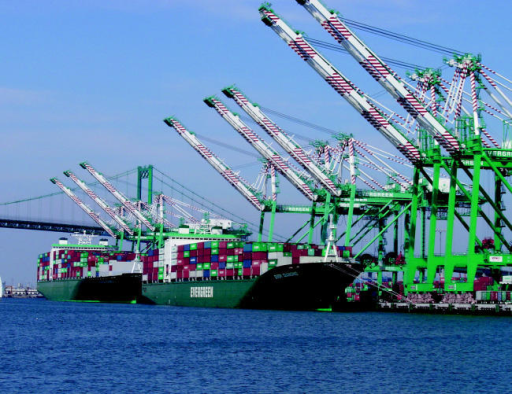 The International Longshore and Warehouse Union (ILWU) and the Pacific Maritime Association (PMA) have been in contract negotiations for months.
The International Longshore and Warehouse Union (ILWU) and the Pacific Maritime Association (PMA) have been in contract negotiations for months.
For the first several months, negotiations seemed to be going smoothly, but things turned contentious as the PMA reported the ILWU was orchestrating slowdowns in the midst of terrible port congestion.
Shippers suffer heavy costs from port congestion and have worried that slowdowns will turn into shutdowns if the ILWU and PMA fail to reach agreement. Coalitions of shippers have called for the White House to step in and send a federal mediator, but the White House has refused to get involved.
Even though the holiday shipping season is essentially over, congestion at the ports still seems as bad as ever. The Journal of Commerce (JOC) reported:
As of Friday (December 12th), 13 containerships were at anchor off the ports of Los Angeles and Long Beach awaiting berth space, two more than a two-year high of 11 reached on Oct. 27, according to the Marine Exchange of Southern California.
ILWU members have been working at West Coast ports since July without a contract and there are no protections in place to keep them from walking off the job and shutting down the ports other than a pledge from both the ILWU and PMA to keep cargo moving.
As was just pointed out, cargo is moving extremely slowly.
Starting yesterday, December 15th, the ILWU is holding a caucus of around 90 union delegates in San Francisco. Will this caucus finally bring an end to the negotiations?
Normally, the union calls together a caucus when negotiations have produced something substantive enough to review. This appears to be the case right now.
(Caucus delegates) may review a comprehensive proposal from employers. While not a “last and final” contract, sources say there was a proposal given to the union by the Pacific Maritime Association so that the 90 or so ILWU delegates attending the caucus would have something to review and determine whether or not to accept.
According to the JOC, the ILWU has already reviewed the PMA’s latest offer, made notes, sent it back to the PMA, and await the PMA’s response to the ILWU’s comment. Bill Mongelluzzo, JOC Senior Editor wrote:
PMA spokesman Steve Getzug confirmed that the employers presented the ILWU with their offer on Thursday. The ILWU today responded with its counter proposals. The PMA is considering the union’s response and anticipates that it will get back together with the ILWU “later this week,” Getzug said.
The rest of the international shipping industry community is watching to see how things will turn out at the caucus.
The two most likely scenarios are as follows:
1 – Ideal Outcome
If the ILWU receives an offer response that they find acceptable from the PMA, the caucus could recommend acceptance of the document to the union’s negotiating team. At that point, the document would need to be presented to the union and put to a vote.
While this process could take a number of weeks, this outcome would essentially mean an end of the contract negotiations and the eventual signing of the new contract.
2 – Rejection Outcome
If the ILWU decides the PMA’s response to their notes on the proposal they sent back is not acceptable, the caucus will make recommendations to the union’s negotiation team and send them back to the table.
If the ILWU rejects the document sent by the PMA, it is unlikely much will happen at the negotiating table until after the holidays are over.
How Likely is a Strike?
A strike could be listed as a third possible outcome, but it is not a highly likely scenario.
Despite the recent contention in talks, the ILWU contract negotiations are moving forward as is evidenced by the caucus and sending back and forth of an offer.
Even if the ILWU is orchestrating slowdowns as they have been accused and have a history of doing, we should trust their pledge to keep cargo moving. Even if it is moving at a very slow pace.
A strike would not only be bad for the economy and ports, but would put ILWU jobs at risk. Since it would not be good for anyone, including the ILWU, I would not expect a strike to happen.
